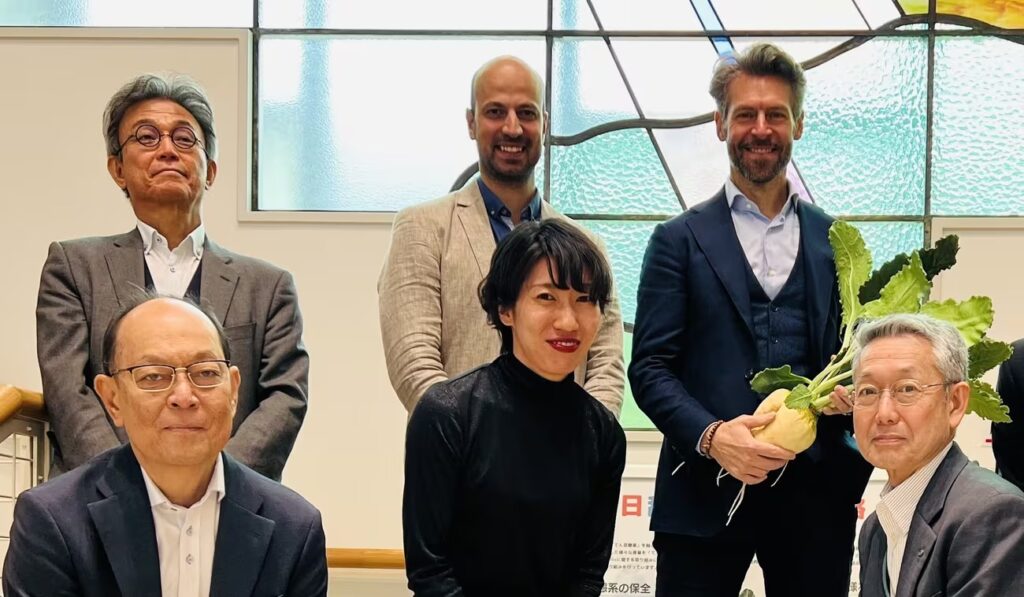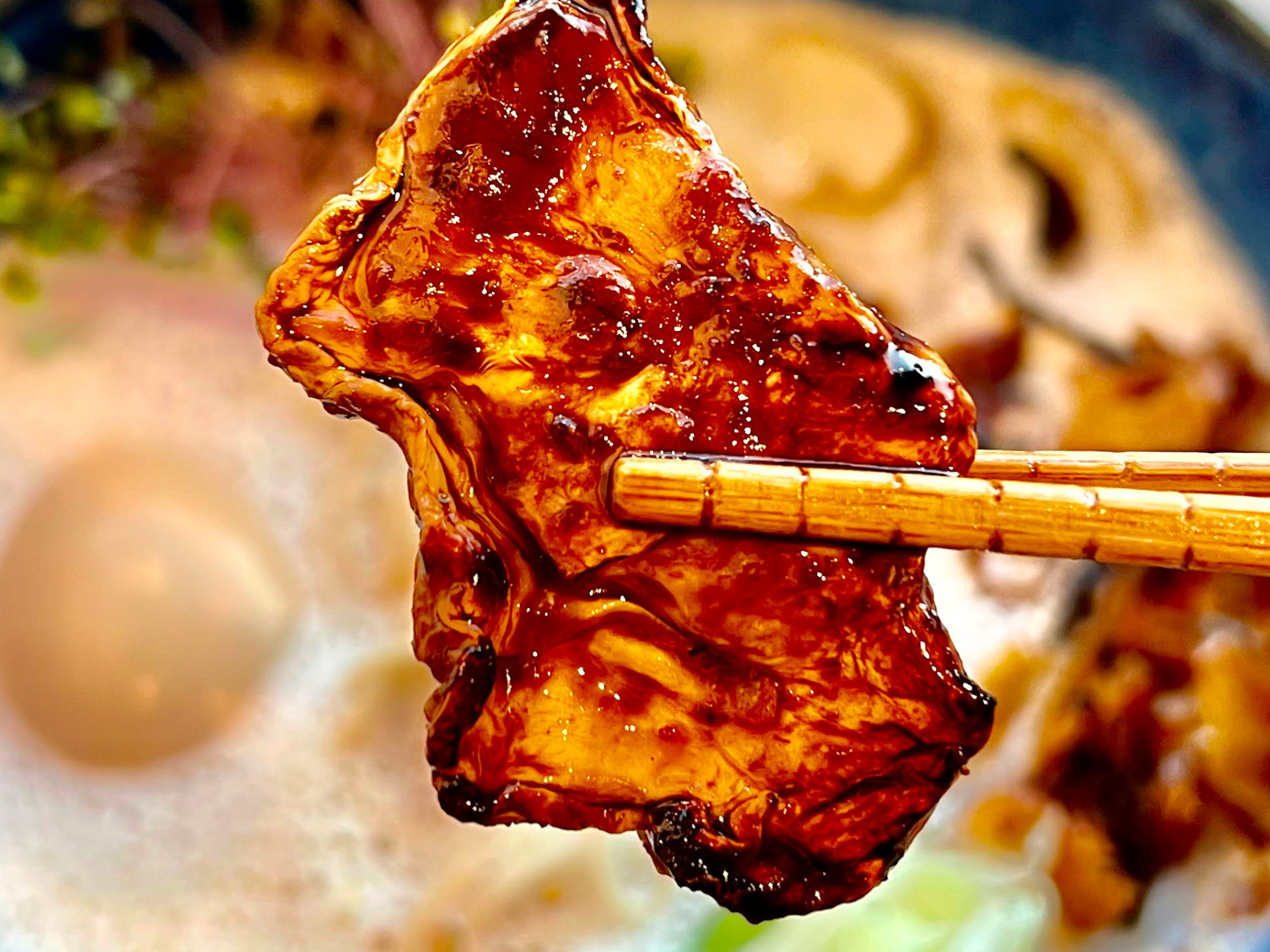Nordic Upcycled Mycelium Startup Enters Japan’s Increasingly Attractive Alternative Protein Market
4 Mins Read
Oslo startup Norwegian Mycelium has set up a subsidiary in Japan and launched an upcycling service to turn food industry sidestreams into sustainable proteins.
In another sign of Japan’s growing appetite for alternative proteins, Norwegian Mycelium (or NoMy) has emerged from stealth with a new subsidiary in Sapporo, Hokkaido.
NoMy Japan, set up in January, has already established key partnerships with local industry players to expand the reach of its core fermentation technology that upcycles agricultural byproducts into planet-friendly foods using mycelium.
The company has also launched MycoPrime, an AI-driven upcycling service that leverages data science to help its partners amp up their upcycling efforts.
“We are thrilled to announce NoMy Japan and introduce our MycoPrime upcycling concept to the world,” said David Andrew Quist, co-founder of NoMy and representative director of the Japan operation. “There is a massive need and opportunity to de-risk the development of sustainable upcycling solutions and bring them to life.”
NoMy looks to curb Japan’s food waste problem

Quist established NoMy in 2020 with CEO Ingrid Dynna, with the aim of using mycelium fermentation to develop low-impact products for a range of industries, including food, bioplastics and biocomposites.
Its initial focus is on food, with the startup working on aquafeed as well as human food applications. The company, which closed a seed funding round in 2021 for R&D purposes, leverages byproducts from the food and agriculture sector as feed for its mycelium to convert waste into high-value proteins and ingredients.
Mycelium, the root-like structure of filamentous fungi, has a long history of use in Japan. One strain, Aspergillus oryzae (or koji mould) is known as its “national fungus”, having been used in many traditional fermented foods like miso, mirin, shoyu and alcoholic beverages like shochu and soju.
Japan, meanwhile, is among the leading contributors to food waste globally – in 2017, it produced 6.12 million tonnes of food waste. But in the 2019 Act on Promotion of Food Loss and Waste Reduction, the government set a target of halving food waste and loss by 2030 (from a 2000 baseline), reaching 4.89 million tonnes. It actually achieved this reduction in 2022, eight years ahead of schedule.
That said, the amount of food waste in the country is split almost equally between households and businesses. NoMy Japan likely has an eye on this figure as it introduces MycoPrime, which is designed to help agrifood companies make further strides in food waste reduction.
The service helps partners find the optimal ways to use their sidestreams – thus minimising waste and carbon emissions, and maximising water recycling – and build co-located production facilities to develop sustainable fungi-based products.
“Through the launch of MycoPrime and partnerships with Japanese companies, we foresee strong growth and impact for our solutions in Japan, and [aim to] become the premier service provider for upcycling food industry sidestreams in this important market,” said Dynna.
Licensable upcycling service sets NoMy apart

As a marker of its progress, NoMy Japan has announced a strategic alliance with Nippon Beet Sugar Manufacturing Co. (or Nitten), the country’s largest sugar beet manufacturer. “Our goal is to create a new industry utilizing sugar beets, which have high carbon dioxide absorption capacity,” explained Nitten president Shu Ishikuri.
“NoMy’s technology, which utilises the byproduct of the sugar manufacturing process to produce filamentous fungal protein as a food resource, has great potential to produce feed and food substitutes for animal protein. We believe that this technology will help to promote agriculture and solve food problems,” he added.
NoMy Japan is also conducting a feasibility study with Hokkaido-based farmer cooperative Hokuren, which has an array of farm production operations in its network. And it has teased further partnerships to be announced soon.
The startup argues that its entry into Japan distinguishes it from other mycelium companies – which are having a stellar year – as it provides a scaleable and licensable end-to-end upcycling service that leverages its core competence and IP to develop solutions on a global scale.
“With NoMy’s technology and MycoPrime, the food industry now has a reliable, end-to-end partner to create value instead of waste, and become a pioneer in food system transformation,” said Quist.
NoMy will also hope to take advantage of Japan’s expanding market for alternative proteins. Industry think tank the Good Food Institute chose Tokyo as the location for its seventh office, underlining its “public funding potential, a world-class research ecosystem, and the ability to scale manufacturing to a global level”.
In another example of an overseas firm setting up in the country, US chain Wayback Burgers’s franchisee in Asia opened Next Restaurant, a 100% plant-based chain in the capital.
These efforts come as research shows growing acceptance of cultivated meat among Japanese consumers, and highlights the country’s need to source 45% of its protein supply from alternative proteins by 2060 in order to decarbonise.



